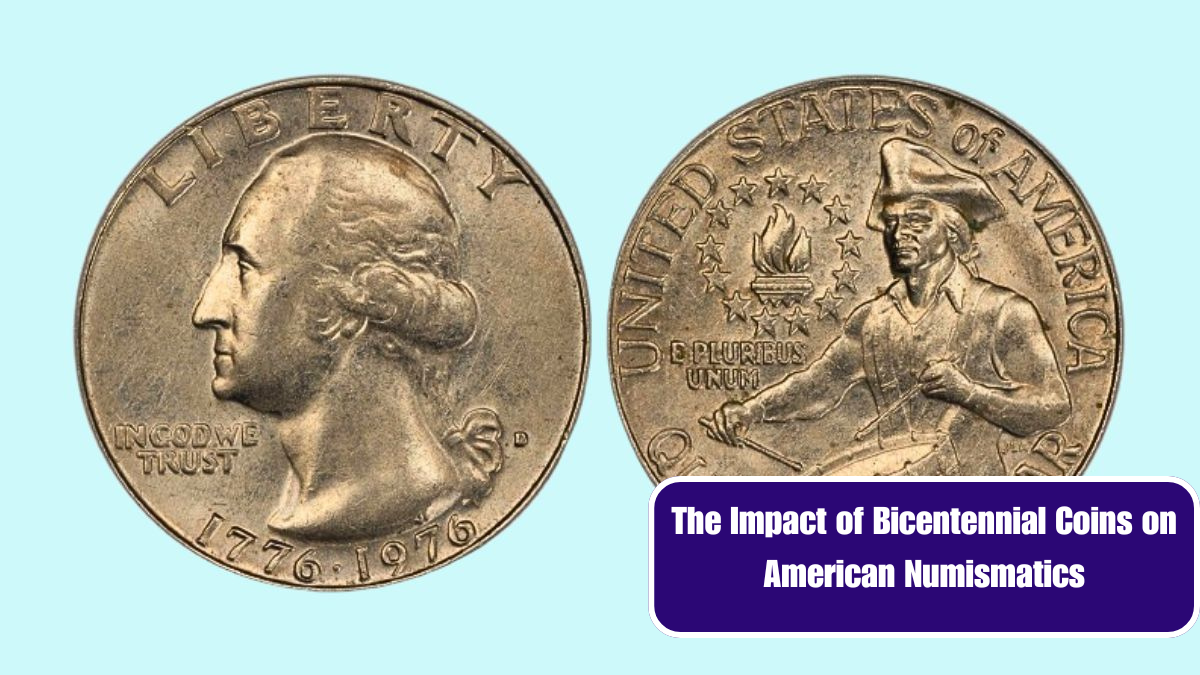In 1975 and 1976, the United States celebrated its bicentennial, marking 200 years of independence. To commemorate this historic occasion, the U.S. Mint issued a special series of coins that left a lasting impression on American numismatics. These Bicentennial coins not only captured the spirit of the era but also significantly influenced coin collecting practices and the broader numismatic community.
A Brief Overview of Bicentennial Coins
The Bicentennial series was unique for several reasons. Unlike regular minting practices, these coins featured distinctive designs to honor the nation’s 200th anniversary. The series included:
- The Bicentennial Quarter (1975-1976): This coin, designed by Jack L. Ahr, showcases a dramatic redesign of the familiar George Washington quarter. The reverse features a depiction of the Colonial drummer, symbolizing the spirit of the Revolutionary War era, and the inscriptions “1776-1976” along with “E Pluribus Unum.”
- The Bicentennial Half Dollar (1975-1976): Created by artist Dennis R. Williams, the reverse side of this coin depicts the Liberty Bell superimposed over the moon. The obverse retains the classic portrait of Benjamin Franklin, but the reverse’s new design emphasized American heritage.
- The Bicentennial Dollar (1975-1976): The Eisenhower dollar was redesigned to include a depiction of the Liberty Bell and the moon. This coin, crafted by artist Richard D. Bartlett, was the only one of the series to feature a completely new reverse design.
Impact on Collecting Trends
- Increased Popularity and Accessibility: The Bicentennial coins were minted in large quantities, making them relatively accessible to the average collector. This mass production contributed to their widespread appeal and increased public interest in coin collecting. For many Americans, the Bicentennial coins were their first introduction to the hobby.
- Focus on Commemorative Issues: The Bicentennial series highlighted the potential for commemorative coinage to attract both casual and serious collectors. This led to a surge in interest in other commemorative coins, with subsequent issues celebrating various historical events, anniversaries, and figures.
- Market Influence: The Bicentennial coins experienced fluctuations in their market value over time. Initially, their abundance led to lower prices, but as years passed and fewer coins were available in pristine condition, their value began to rise. This shift emphasized the importance of coin condition and rarity in determining a coin’s value, principles that continue to influence numismatic valuation today.
- Educational Impact: The Bicentennial series also had an educational impact, fostering a greater appreciation for American history and the art of coin design. Collectors and the general public alike were exposed to historical figures and symbols through these coins, sparking interest in learning more about the nation’s past.
Legacy and Modern Numismatics
The legacy of the Bicentennial coins extends beyond their immediate impact on collectors. They set a precedent for future commemorative issues, demonstrating how special designs and thematic elements can enhance the appeal of coinage. The series also helped to elevate the role of the U.S. Mint in crafting coins that celebrate national milestones and cultural heritage.
Moreover, the Bicentennial coins are remembered for their role in shaping modern numismatic practices. They underscored the importance of thoughtful design, historical relevance, and the connection between coins and national identity. Today, as collectors seek coins that reflect significant historical events or artistic achievements, the Bicentennial series remains a touchstone of American numismatic history.
The Bicentennial coins were more than just a commemorative series; they were a catalyst for change in the world of coin collecting. Their influence on collecting practices, market dynamics, and educational aspects of numismatics continues to resonate, making them a cherished part of American numismatic heritage.
